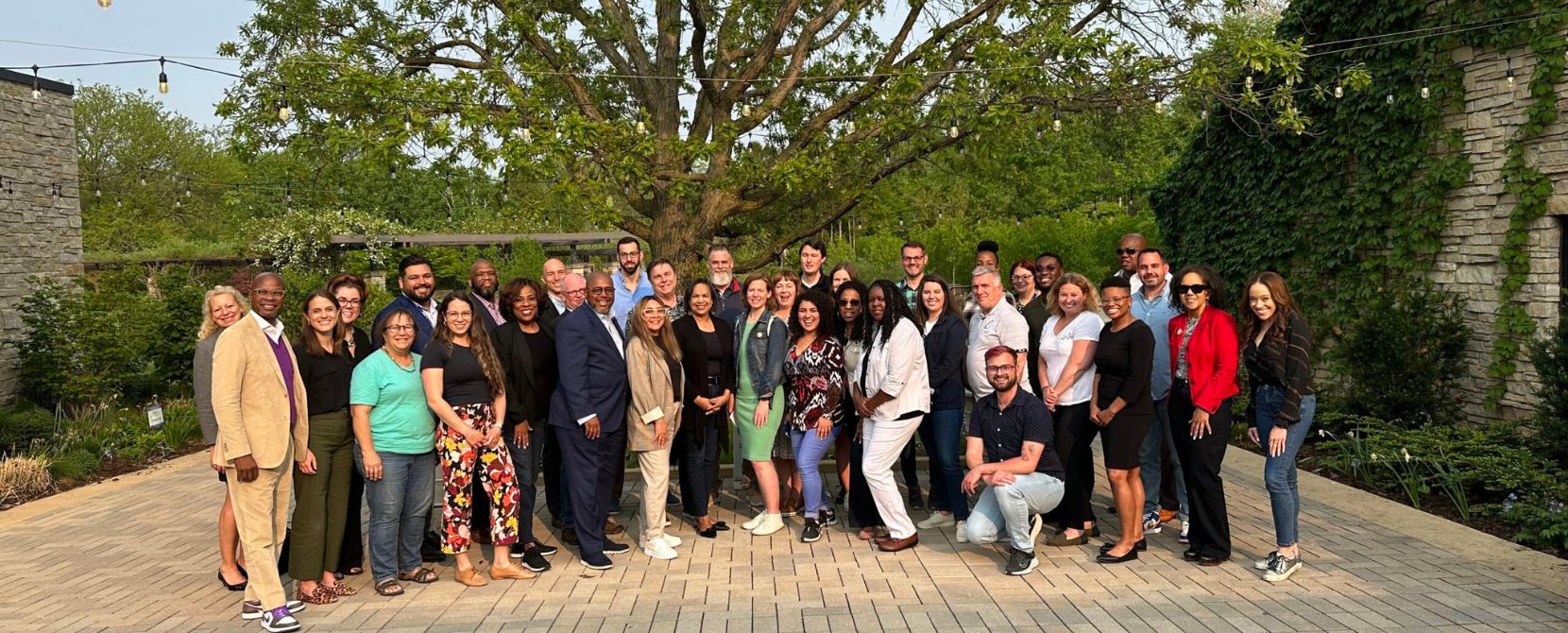In the aftermath of COVID-19, city leaders have faced an increasingly urgent responsibility to improve public services. And while leaders have accepted that challenge, it is clear they cannot do it alone. Recognizing the need for a collaborative approach, the National League of Cities (NLC) continues to work with its strategic partners to enhance the municipal experience for its members and those they serve.
These strategic partnerships help foster a symbiotic relationship between the public and private sectors while allowing businesses and local organizations to be most effective. Through events like the Capstone Leaders Forum, NLC acts as a conduit for critical connections between local government and private sector leaders.
This year’s Capstone Leaders Forum took place in picturesque Madison, Wisconsin from May 17-19. The forum provided NLC’s Capstone and Enterprise partners with the opportunity to exchange ideas with NLC members on four major themes: racial equity in public-private partnerships, housing affordability, corporate social responsibility (CSR), and the role of public-private partnerships in workforce development. Here are a few discussion points that were emphasized during the convening:
Racial Equity in Public-Private Partnerships
NLC’s Director of Race, Equity, and Leadership (REAL), Shawna Davie invited attendees to tackle the idea that improving outcomes related to racial equity has a direct impact on the economic health and human well-being of municipalities. Davie challenged our partners to understand the cost of racial inequities and the effect it has on an organization’s bottom line. NLC President Victoria Woodards, Mayor of Tacoma, WA, and NLC CEO and Executive Director Clarence Anthony implored attendees to think purposefully about how we can embed equity into our practices to ensure that our partnerships can continue to thrive and provide the effective solutions they intend to.
Mayor Pro Tem Gyna Bivens of Fort Worth, Texas emphasized the need to build intentional relationships with community members. Bivens stressed that from a business perspective, we don’t have to agree on everything, but we do need to make certain that we center the cost of racial inequities.
Housing Affordability and Solutions
NLC’s Director of Housing and Community Development Lauren Lowery illustrated how NLC has used various tools, resources, and opportunities to provide local leaders with foundational and applied knowledge on the most pressing housing and homelessness issues facing cities today. One main point of discussion was the Housing Supply Accelerator. The Accelerator seeks to align the efforts of public and private stakeholders, including local governments, community planners, builders, financial institutions, housing policy associations, and state and federal partners, to meet housing needs at the local level.
Attendees discussed potential solutions to address the housing crisis which included partnering with businesses for comprehensive community investment, facilitating productive dialogue between citizens, council, and developers, and exhibiting strong leadership that demonstrates the benefits of updated housing policies. Notable roadblocks include NIMBY (not in my backyard)-ism , outdated regulations, shifts in housing preferences, and a weak workforce pipeline.
The group agreed that the key next steps include fostering meaningful public engagement with transparent dialogues with constituents about local housing challenges and encouraging holistic planning that integrates housing with transportation and infrastructure.
Corporate Social Responsibility
The concept of corporate social responsibility (CSR) refers to a company’s commitment to operating in an economically, socially, and environmentally sustainable manner. NLC’s partners agreed that working with local government should be an essential component of any successful CSR program.
Emerging CSR trends that surfaced during the conversation were:
- Environmental Sustainability: Sustainability and climate action are central themes in CSR. Partners are increasingly focusing on reducing their carbon footprint, transitioning to renewable energy, adopting circular economy practices, and addressing environmental risks.
- Diversity, Equity, Inclusion, and Accessibility (DEIA): There’s a growing emphasis on creating diverse and inclusive workplaces. CSR efforts include promoting gender equality, racial and ethnic diversity, LGBTQ+ inclusion, and ensuring equal opportunities for underrepresented groups.
- Social Impact and Community Engagement: Companies are aligning their CSR initiatives with the needs of local communities and broader society. This can include supporting education, healthcare, affordable housing, and other social welfare programs.
Some best practices for effective CSR implementation include:
- Alignment with Local Priorities: Collaborate with local government to understand their priorities and needs, ensuring your CSR initiatives align with local development plans.
- Partnerships and Collaboration: Work together with local government agencies, non-profits, and community organizations to leverage resources, knowledge, and expertise.
- Local Hiring and Procurement: Prioritize hiring local talent and sourcing goods and services from local businesses, stimulating the local economy, and creating jobs.
Public-Private Partnerships’ Role in Workforce Development
Another key topic discussed at the forum was the value of public-private partnerships in workforce development. Both public and private sectors highlighted concerns about talent scarcity, inadequate training and development, and the challenge of retaining skilled employees, especially as Baby Boomers retire. Some of the proposed actionable ideas included:
- Clearly articulating an attractive value proposition, focusing on flexible work environments, mission-driven work, and transparent advancement opportunities.
- Investing in talent training, internships, and apprenticeships to develop skilled employees.
- Demonstrating commitment to employee wellness through guidance, resources, personal time off, and robust health insurance benefits.
- Recognizing individual differences in employees, offering a safe space for continuous feedback, and managing accordingly to hire and retain talent.
Across all conversations during the forum, a recurring theme emerged: the paramount significance of forging robust collaborations between the public and private sectors. These alliances wield considerable influence at the community level, improving neighborhoods and amplifying economic opportunities for cities, towns, and villages across the country.







